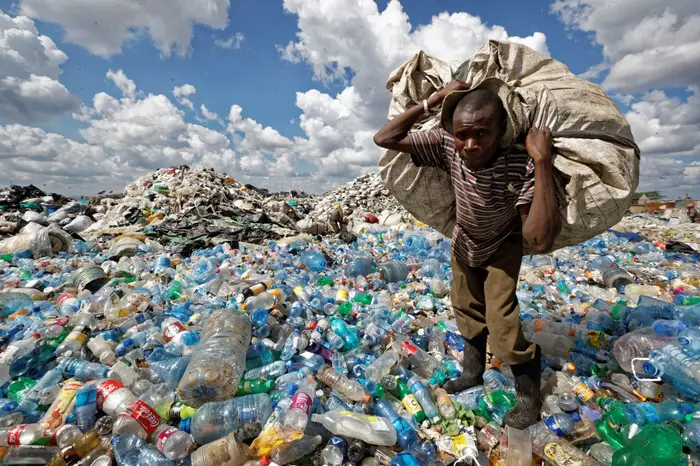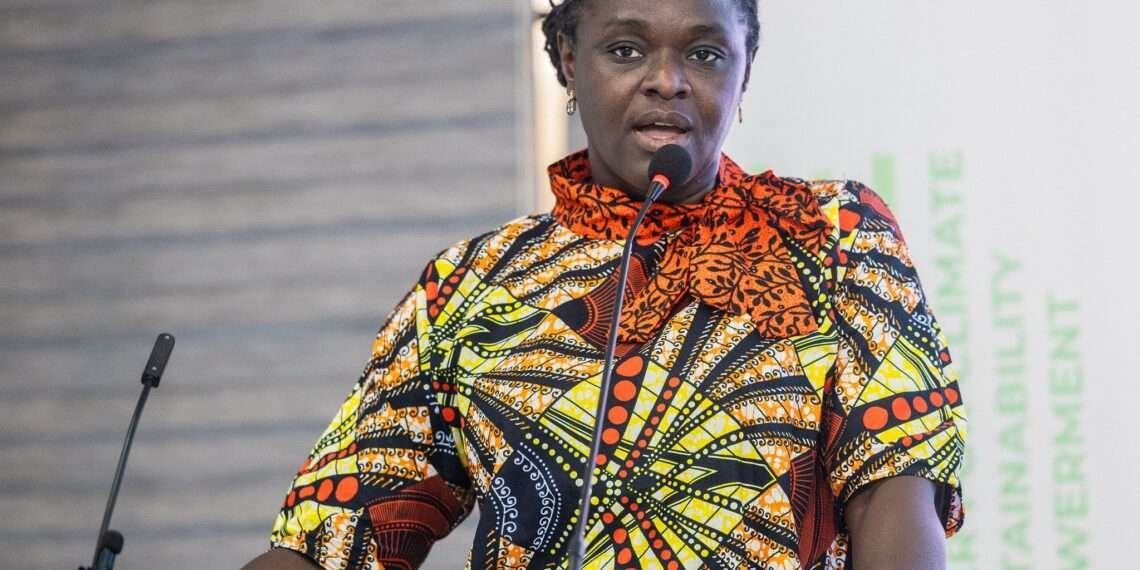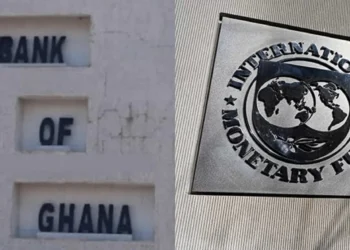Ghana’s escalating plastic waste crisis is reaching a tipping point, and the Environmental Protection Authority (EPA) has signaled its intent to take decisive action.
Globally, plastic pollution is an urgent environmental catastrophe. According to the World Economic Forum, a staggering 8 million tonnes of plastic waste leak into the ocean annually.
If immediate action is not taken, plastic will outnumber fish in the ocean by 2050. The World Economic Forum further disclosed that Ghana alone generates approximately 840,000 tonnes of plastic waste every year, yet only about 9.5% of this is collected for recycling.
This means the vast majority of plastic waste ends up in landfills, gutters, water bodies, and streets, exacerbating sanitation challenges. Beyond the sheer volume of waste, the country’s informal waste collection system operates “below the radar,” without standardized regulations.
This not only puts waste pickers and other stakeholders in the value chain at risk but also hinders larger institutions from effectively engaging in waste management solutions.
A systematic overhaul is required—one that combines policy enforcement, public education, and alternative sustainable practices.
The Environmental Protection Authority Chief Executive Officer, Professor Nana Ama Brown Klutse, in a public address, outlined a phased approach to reducing plastic usage in Ghana, drawing lessons from nations that have made remarkable progress in tackling plastic pollution.
“We see the increments in the number of plastic waste in the country. There is a lot we can do. We can learn from other countries. We can learn from Rwanda. We can learn from Kenya and we can learn from other European countries to control the use of plastics”.
Professor Nana Ama Brown Klutse, CEO of the Environmental Protection Authority
According to him, countries like Rwanda and Kenya have successfully banned thin plastic bags, forcing industries and consumers to adopt biodegradable alternatives such as paper bags.
The EPA under her leadership plans to introduce similar measures, starting with supermarkets and formalized business areas before gradually extending them to the informal sector.
One of the most ambitious elements of the plan is the potential ban on plastic bottles and plastic bags at Kotoka International Airport (KIA) and supermarkets.
This policy according to her mirrors the stringent plastic-free regulations enforced at Kigali International Airport in Rwanda.
To compensate for the inconvenience, Professor Brown Klutse suggested Ghana could provide alternative drinking water solutions, such as water fountains or designated refill points.
“This means also that we have to provide drinking water at some advantage points. So at the airport, for instance, we can put drinking water there. You can use flux or cup to fetch to drink. You can also use your hand to fetch the water to drink, which is done in other countries.”
Professor Nana Ama Brown Klutse, CEO of the Environmental Protection Authority

The Challenges of Implementation
Despite the EPA’s determination, the road ahead is fraught with challenges. Ghana’s plastic industry is deeply entrenched, with thousands of jobs linked to manufacturing, distribution, and sales.
A sudden and aggressive ban could lead to economic disruptions and public resistance, particularly in the informal sector where sachet water and plastic packaging are dominant.
Additionally, regulatory enforcement remains a critical concern. Ghana has had environmental laws on paper before, but enforcement has been inconsistent due to inadequate resources, political interference, and public indifference.
A transition to sustainable materials must be accompanied by strong governmental backing, effective monitoring, and incentives for businesses to shift toward eco-friendly alternatives.
While the EPA’s vision is a step in the right direction, government action alone is insufficient. The fight against plastic pollution requires a collective effort from all Ghanaians. Businesses must be willing to adopt sustainable packaging, and consumers must shift their habits to embrace reusable alternatives.
Public awareness campaigns, stricter penalties for littering, and incentives for recycling must complement regulatory changes.
Ghana stands at a crucial crossroads. If the EPA’s efforts are fully implemented with widespread public support and strict enforcement, the nation can set a precedent in Africa for sustainable waste management.
However, if these policies remain mere rhetoric, plastic waste will continue to suffocate our environment, pushing us closer to an ecological disaster.
READ ALSO: Reform UK’s Election Surge Reshaping British Politics




















